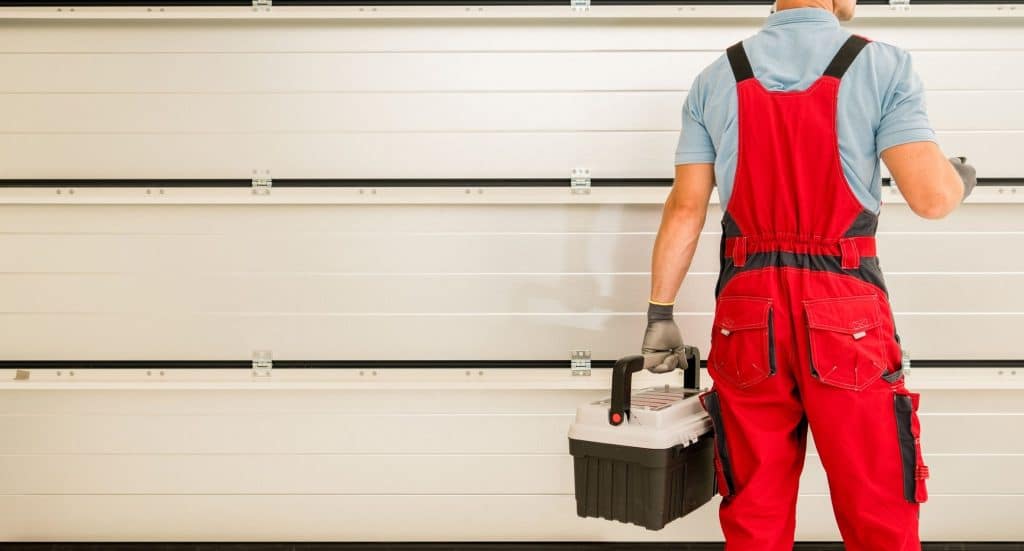Garage door openers play a crucial role in the functionality and security of your garage. Over time, however, they can start to wear out and require replacement. Knowing when it’s time to replace your garage door opener is essential to avoid unexpected breakdowns and ensure the smooth operation of your garage door. In this comprehensive guide, we will walk you through the signs indicating it’s time for a new garage door opener and provide solutions to common problems.
What is the Lifespan of Garage Door Openers?
Typically, a garage door opener is built to last between 10 to 15 years. However, its longevity can vary based on how well it’s maintained. Considering that many homeowners operate their garage doors multiple times daily, it’s essential to ensure their regular upkeep.
Opting for professional checks once or twice annually can aid in maintaining its optimal performance. During these check-ups, technicians will closely examine the various components of the opener. If they spot any signs of wear and tear, they might recommend changing specific parts like springs, rollers, or cables. Additionally, they’ll clean the tracks and lubricate the moving sections, ensuring your garage door functions seamlessly. An imbalanced door can be set right by adjusting the spring tension and verifying the automatic reverse feature’s effectiveness. Regular attention can add several more years to your garage door opener’s life.
An upgrade might be worth considering for those with older yet still functional garage door openers. Modern openers are equipped with advanced features that enhance safety and convenience. And when the time comes for a promotion, First Responder Garage Doors proudly presents top-tier LiftMaster garage door openers boasting the newest tech enhancements.
Signs Your Garage Door Opener Needs Replacement
1. The Garage Door Opener Fails to Work
One of the most obvious signs that your garage door opener needs replacement is when it stops working. If you press the button to open or close the garage door and nothing happens, it indicates an issue with the opener. Before jumping to conclusions, there are a few troubleshooting steps you can take:
- Check the batteries in your garage door remote and replace them if necessary.
- Ensure that the opener is not in lock mode, as this can prevent it from responding to the remote or wall control.
- Check the power source and make sure the outlet is functioning properly.
- Inspect the opener for any loose or disconnected wires.
If none of these steps resolve the issue, it’s time to consider replacing your garage door opener.
2. Unprompted Operation of the Garage Door
When a garage door begins to exhibit independent behavior, operating without any direct instruction or command from the user, it indicates an underlying issue with the door’s opening mechanism. Such spontaneous actions can pose significant risks:
a. Security Risk: A door that randomly opens compromises the security of the garage and potentially the entire home. An open garage is an open invitation for potential burglars, pests, or even wildlife. It exposes your property, vehicles, and other valuables stored in the garage to theft, damage, or the elements.
b. Safety Concern: Besides the security threat, an unpredictably moving garage door can be a safety hazard. Family members, especially children or pets might be in the vicinity when the door decides to move on its own, potentially causing injury.
c. Mechanical Strain: Regular and unplanned operations can put undue stress on the door’s mechanism, shortening its lifespan and leading to potential breakdowns sooner than expected.
Potential Causes:
- Remote Control Malfunction: Sometimes, the issue might be with the remote rather than the opener itself. Faulty remote controls or buttons can send signals without being pressed.
- Frequency Interference: Other electronic devices in or near your home can interfere with the frequency of your garage door opener, causing it to activate without your command.
- Wiring Issues: Damaged or shorted wires can send random signals to the garage door opener, leading it to operate spontaneously.
- Limit Settings: Modern garage doors have settings that tell the door how far to move to be fully open or closed. If these are set incorrectly, the door might think it has yet to close entirely, leading it to try and ‘close repeatedly’.
- Sensor Malfunction: Safety sensors are designed to prevent the door from closing if there’s something in the way. A malfunctioning sensor might interpret even clear paths as obstructions, making the door reverse its operation.
Given these risks and potential causes, if your garage door starts behaving erratically, it’s advisable to disconnect the opener from the power source immediately. This prevents further unwanted movements. Once powered down, reach out to a qualified garage door repair technician. They’ll be equipped to pinpoint the problem and recommend the most effective solution, ensuring both your household’s safety and your property’s security.

3. The Garage Door Opener Makes Unusual Noises
As garage door openers age, they can become louder and start making unusual noises during operation. If you notice grinding, screeching, or rattling sounds coming from your opener, it’s a sign that it may be reaching the end of its lifespan, potentially requiring garage door repair. These noises can indicate worn-out components or lack of proper lubrication. While some minor noises can be normal, persistent and loud noises are a clear indication that it’s time to replace the opener.
4. The Garage Door Won’t Go Up or Come Down
When your garage door fails to open or close fully, it can be frustrating and inconvenient. If you experience this issue, first check the condition of the tracks and ensure they are clear of any obstructions. If the tracks are clear, but the door still won’t move, it could be a problem with the opener. In this case, it’s best to consult a professional to assess the situation and determine whether a replacement is necessary.
5. You Notice Visible Vibrations When the Opener Operates
When a garage door opener functions properly, it should operate smoothly without causing excessive vibrations. If you notice significant pulsations or shaking when the opener is in use, it could be a sign of worn-out internal components. These vibrations can further damage the opener and the garage door itself. It’s advisable to have a professional inspect the opener and recommend a replacement if necessary.
6. You Have an Old Garage Door Opener
The lifespan of a garage door opener is typically around 10 to 15 years. If your opener is approaching or surpassing this age range, it’s a good idea to start considering a replacement. Older openers may need more safety features and technology advancements, making them less efficient and secure. Additionally, finding replacement parts for older models can become increasingly challenging. Upgrading to a new opener will improve the performance and enhance your garage’s security.
Listen to the Signs Indicating You Should Replace Your Opener
Regarding your garage door opener, paying attention to the signs indicating it’s time for a replacement is crucial. Ignoring these signs can lead to inconvenient breakdowns, compromised security, and potential safety hazards. You can ensure your garage door’s smooth and reliable operation by staying proactive and seeking professional assistance.
At First Responder Garage Doors, we understand the importance of a properly functioning garage door opener. Our team of garage door service in Southlake, TX experts is ready to assist you with any opener-related issues and guide you through choosing a suitable replacement.
Contact us today for a comprehensive evaluation of your garage door opener and enjoy peace of mind with a reliable and efficient system.
